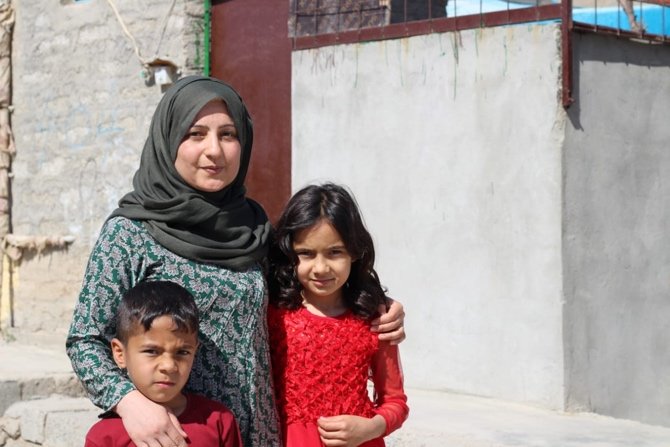Journalism
During the program, the girls worked together to produce a magazine called Afrandin (meaning Creation), which they wrote, edited and designed. At the beginning, some of the Yezidi and Muslim girls would not even sit together, but by the end, they were working in harmony and building lasting friendships. One of the girls has since even been hired at a Yezidi publication.
One of our projects saw young women get the chance to learn journalism skills in an exciting collaboration with the non-profit DAK. The project was funded by the International Organization for Migration (IOM), and brought together a diverse group of 15 girls from Muslim, Yezidi, and Christian communities to develop media awareness and practices.
The girls had been living in fiercely divided communities since the ISIS invasion in 2014, and were initially wary of mixing. But our programme, called Fostering Social Cohesion and Peacebuilding through Female-Led Journalism, tackled this destructive narrative, championing the idea of community integration.
During the project, the girls worked together to produce a magazine called Afrandin (meaning Creation), which they wrote, edited and designed. At the beginning, some of the Yezidi and Muslim girls would not even sit together, but by the end, they were working in harmony and building friendships. One of the girls was later hired at a Yezidi publication.
Not only did the girls learn vital communication skills to express themselves through magazines, newspapers, radio, and social media, but they also learned how media can bring about social unity rather than destruction. As fundamental drivers of change, they also recognised how their role in peacebuilding benefits their families, communities and ultimately their whole country.
We also incorporate many of the activities from the Journalism project into our Peace Sisters programme, which includes soft skills training in communications for women and girls.
CASE STUDY
One of the girls, Kheria, said of the Journalism project: “The training was very good. I learnt a lot about social cohesion. The most amazing part was the activities that will make us never forget the information.” Another participant, Jomana, added: “Women have to give priority to education, it’s the most important thing in life.”
Holiday and Community Events
The women and girls we support come from diverse sectors, ethnic groups and backgrounds, and we strive to recognise key cultural events and holidays. We believe it is vital to respect family traditions, friendship, hospitality and community events – such as Ramadan.
The women and girls we support come from diverse sectors, ethnic groups and backgrounds, and we strive to recognise key cultural events and holidays. We believe it is vital to respect family traditions, friendship, hospitality and community events – such as Ramadan.
Occurring once a year and as prescribed by Islam, adult Muslims fast from dawn to dusk, if their health permits. After the sun sets, the day-long fast is broken by Iftar, the evening meal usually shared with family or other community members. With many displaced people residing in camps, it can be a hard time of year for those who celebrate Ramadan as they are away from their home and family members. In collaboration with our partners, we have previously hosted an Iftar meal for Muslim and Yezidi women, serving as an integration platform between the two communities. Regardless of background, sharing holiday meals and the traditions surrounding them builds friendship, community and a sisterhood. It is also a peacebuilding process, which fosters religious and cultural understanding.
Additionally, in recent years we have raised funds around Ramadan so that mothers can buy their children celebratory outfits for Eid – which marks the end of the holy period. Over the past two years we have been able to take hundreds of children from three camps on shopping trips to choose their own special clothing, footwear and accessories.
CASE STUDY
Nareeman, pictured with her three children, was one of the women we reached through one of our successful Ramadan campaigns. A Syrian refugee and single mother, she heartbreakingly lost her husband to a heart attack many years ago, and has since been trying to raise her children in the best way she can. Our appeal enabled Nareeman to buy her children Eid outfits to celebrate the end of Ramadan, putting a big smile on their faces.




